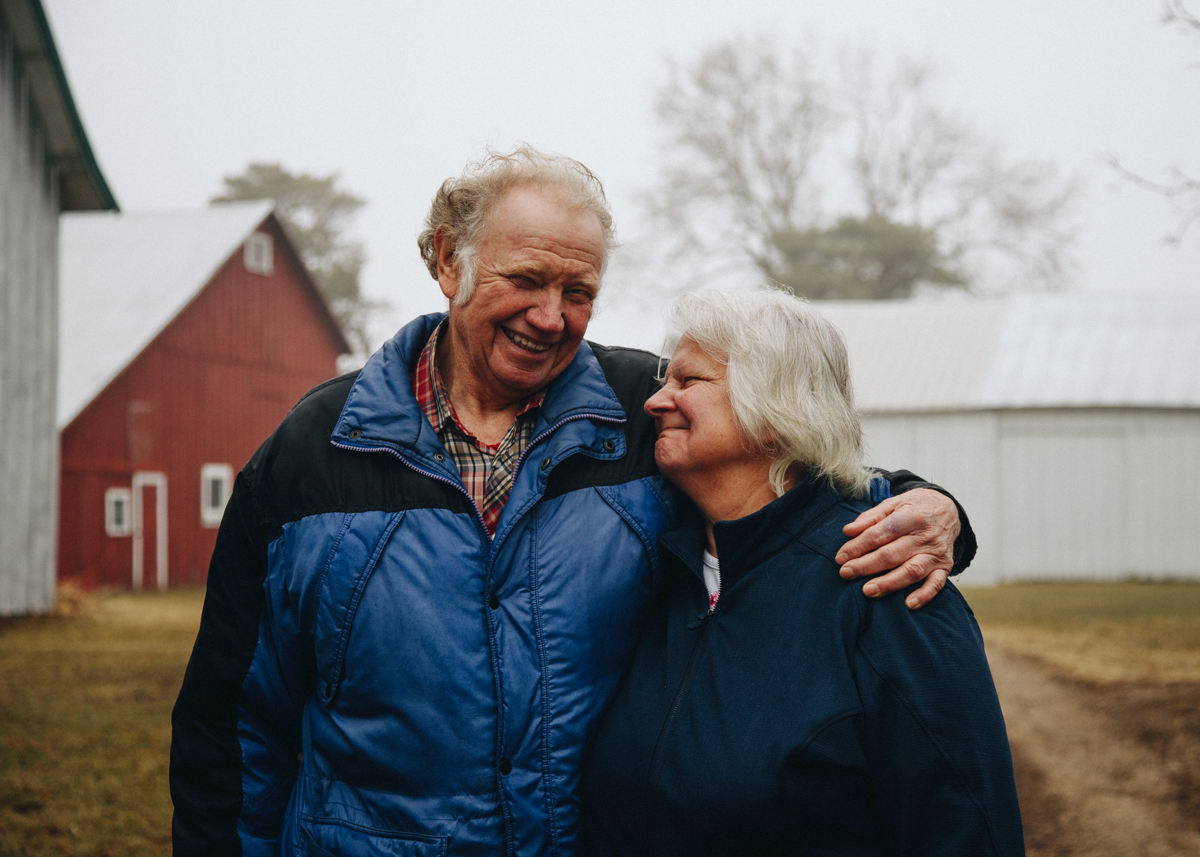Whetstone Farm: Cultivating Sustainability and Community in Western Wisconsin
Explore how a diversified team of farmers at Whetstone Farm is redefining agriculture through regenerative practices, rotational grazing, and a deep commitment to the land and animals.
Photography and videography by Sarah Carroll
Nestled in the rolling hills of western Wisconsin, Whetstone Farm is more than just a farm—it's a community. Located in the St. Croix River watershed, this collaborative project brings together multiple families and enterprises to create a unique farming experience. Here, they raise organic vegetables and 100% grass-fed lamb and beef, all while prioritizing sustainable practices and fostering strong connections with the land and each other.
At first glance, Whetstone Farm might seem like any other small-scale farm. But look closer, and you'll discover a place where innovation and tradition blend seamlessly. "We're a collaborative farm located in the St. Croix River watershed," explains Klaus Zimmerman Mayo, who specializes in livestock. "We raise vegetables and grass-fed meats—sheep and cattle. We also work collaboratively with some vegetable seed producers."
Meet the Farmers of Whetstone Farm
Whetstone Farm thrives thanks to the dedicated work of its diversified team. Clint Freund focuses on seeds and vegetables. Emily Hanson also works with vegetables, helping cultivate a variety of crops. Frances Kelliher plays a dual role, managing both livestock and vegetable production. Ashton Kulesa is dedicated to livestock. Chris Mann contributes to the vegetable side of the farm, while Kassandra McKinnon shares her time between seeds and livestock. Finally, Klaus Zimmerman Mayo leads the livestock operations.
This collaborative effort extends beyond farming activities, fostering a community spirit that permeates every aspect of life on the farm. The group always wanted to farm in a community. Emily Hanson explains, "Now, we're at a point where we have six, seven adults and four kids all living and farming together. We have multiple farm enterprises coexisting, and we make decisions collectively about managing the land."
Regenerative Agriculture at its Core
What sets Whetstone Farm apart is its commitment to regenerative agriculture. The farm aims to work with the native ecosystem rather than against it. This philosophy is evident in their approach to livestock management. "At Whetstone, one of the things we do is managed rotational grazing," says Emily Hanson. "We move our sheep every day, so they get fresh grass. This practice helps with parasite management, avoids overgrazing, and ensures the animals are always outdoors, getting sunshine."
The benefits of this method are twofold: it improves the quality of the pasture and enhances the health and well-being of the animals. "Grasslands and ruminants co-evolved," Klaus Zimmerman Mayo points out. "That's the mindset we go into it with. It results in a much better product; we get a lot of compliments on the quality and taste of the meat."
A Community of Farmers and Families
Whetstone Farm is home to multiple families, all living and working together. They share meals, stories, and responsibilities, creating a tight-knit community. This collaborative approach extends beyond daily chores. The farm also offers unique educational opportunities, such as lamb slaughter classes. "It's a really empowering experience to get that relationship with your food," Emily Hanson shares. "Being in relationship with your meat by participating in the slaughter and butcher makes you value it more. There's lower stress for the animal, and the experience is powerful. It's both serious and playful, a way to explore and understand where your food comes from."
These classes are a rare opportunity in a food system dominated by industrial slaughterhouses. They allow participants to learn how to slaughter, skin, gut, and butcher their own meat, fostering a deeper connection with the food they consume. The farm even offers scholarships to make these classes accessible to more people, ensuring that knowledge and humane practices are shared widely.
A Diverse Array of Offerings
Beyond meat, Whetstone Farm provides a variety of other products. Through their online farm store, they sell wool comforters, pillows, naturally tanned sheep skins, grass-fed beef, tallow, yarn, and more. Community members can also find retail cuts of lamb, mutton, and seasonal vegetables at the St. Croix Falls Farmers Market through October and by appointment at the farm.
In their vegetable fields, Whetstone Farm follows organic practices, using cover crops and compost to build soil fertility instead of synthetic inputs. "We try to build fertility through cover cropping," says Chris Mann. He shares a way of thinking about cover cropping that he attributed to Leah Penniman of Soul Fire Farm. "It's a way of mimicking the forest floor, so there's always organic material on top of our soil. We leave as much crop debris as possible, always feeding our soil."
Inspiring a New Generation of Ethical Eaters
Whetstone Farm is not just a place to buy food; it's a source of inspiration for a more ethical, sustainable way of eating. The families here are passionate about their work and eager to share their knowledge and values with others. By supporting Whetstone Farm, you're not only getting high-quality, ethically-raised products but also contributing to a model of farming that prioritizes community, sustainability, and animal welfare.
To learn more about Whetstone Farm, visit their website or follow them on Instagram @whetstonefarm
Here, you can explore their offerings, sign up for classes, and stay updated on the latest farm news and events.
















